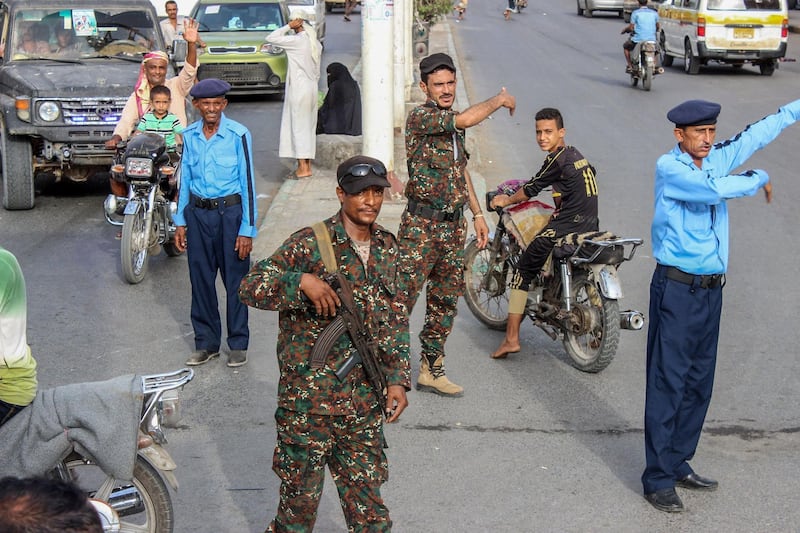Martin Griffiths, the UN Secretary General's special envoy for Yemen, told the Security Council on Wednesday that Houthi rebels had withdrawn from the ports of Hodeidah, Al Saleef and Ras Isa.
The UN had been monitoring the pull-out for four days. It is the first step of a process agreed to in December as part of a ceasefire in the Red Sea ports, which has been repeatedly delayed by a lack of trust between the rebels and the government.
Mr Griffiths said the withdrawal was a concrete step and presented an opportunity to return to talks.
But he and diplomats on the council warned that fighting elsewhere, especially a drone attack on a pipeline in Saudi Arabia, threatened to derail such efforts.
Hodeidah is the main entry point for Yemen's imports and a source of revenue for the Iran-backed rebels.
The Arab Coalition led by Saudi Arabia and the UAE, which has backed Yemen's internationally recognised government in the conflict since 2015, says the Houthis' control of the ports allowed weapons to be smuggled in from countries including Iran.
Peace talks six months ago in Sweden led to the ceasefire agreement for Hodeidah.
“The military forces of Ansar Allah have now left the three ports,” Mr Griffiths said, referring to the Houthis. “This will allow the UN to play a leading role in supporting the Yemen Red Sea ports in management and inspections at the ports.”
Although the Houthis have pulled out of the ports and immediate surrounds, the UN has not yet brokered a deal on the composition of local security forces that must take their place under the limited ceasefire deal. Yemeni troops remain on Hodeidah’s outskirts
“We were never expecting the implementation of this agreement to be easy,” Mr Griffiths said.
“We are pursuing an agreement with the parties on an approach to the issue of local security forces in parallel with negotiations on redeployments."
Lt Gen Michael Lollesgaard, who leads the UN mission in Hodeidah, is handling those negotiations and was due to give a briefing on the process later on Wednesday.
Mr Griffiths said that Tuesday's drone attack on a Saudi Aramco pipeline, and other violence, showed that Yemen was at a crossroads between war and peace.
“Events like this are a reminder that hard won achievements can be wiped away very easily,” he said.
Saudi Arabia has responded to the attack by urging the Security Council to enforce resolutions aimed at disarming the Houthis, saying the rebels used the port of Hodeidah as a “launch pad for numerous terrorist operations”.
A letter sent to the council on Tuesday said seven explosive drones targeted the Saudi facilities.
“While the Houthi militia claims full responsibility and calls it a victory, such an act will only lead to further escalation in the region,” the letter read.
The letter was circulated to the council before Mr Griffiths’ briefing.
Mr Griffiths said focusing on progress in Hodeidah would bring the parties closer to a negotiated end to the conflict.
“It has been three years since the parties discussed politics," he said. "It's about time.”
Britain's permanent representative to the UN, Karen Pierce, said Mr Griffiths' briefing to the council was “both uplifting and horrifying”.
“We condemn this attack by the Houthis,” Ms Pierce said of the drone incident.
The council also heard from Mark Lowcock, the UN's emergency relief co-ordinator, who said the “spectre of famine still looms” in Yemen, and that cholera had already affected 300,000 people this year, compared to 370,000 in all of 2018.
And Henrietta Fore, Unicef's executive director, said the war was affecting children indiscriminately, with eight minors being killed, wounded or recruited to the fighting every day.
“The fighting still rages across 30 active conflict zones, home to 1.2 million children,” Ms Fore said.






